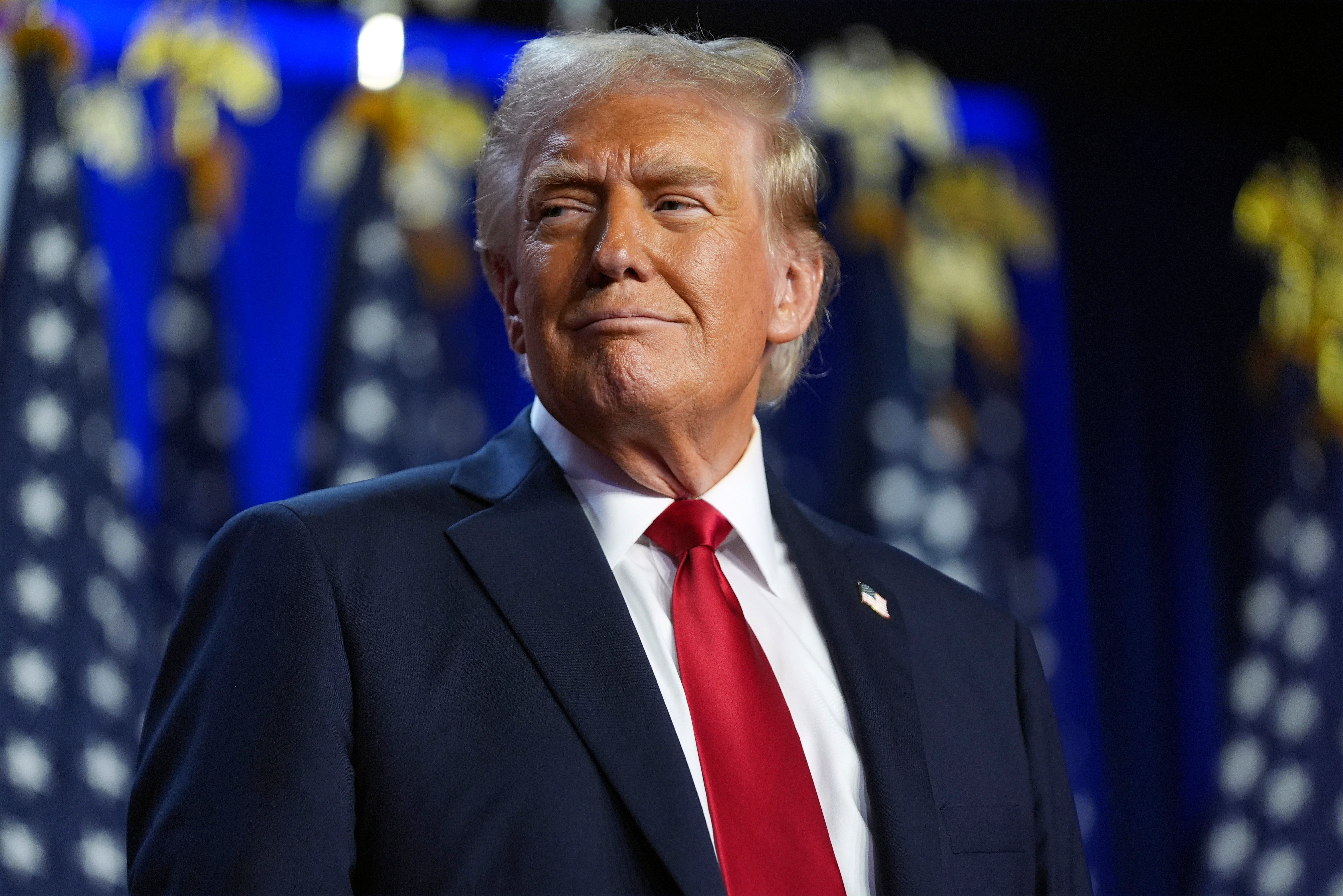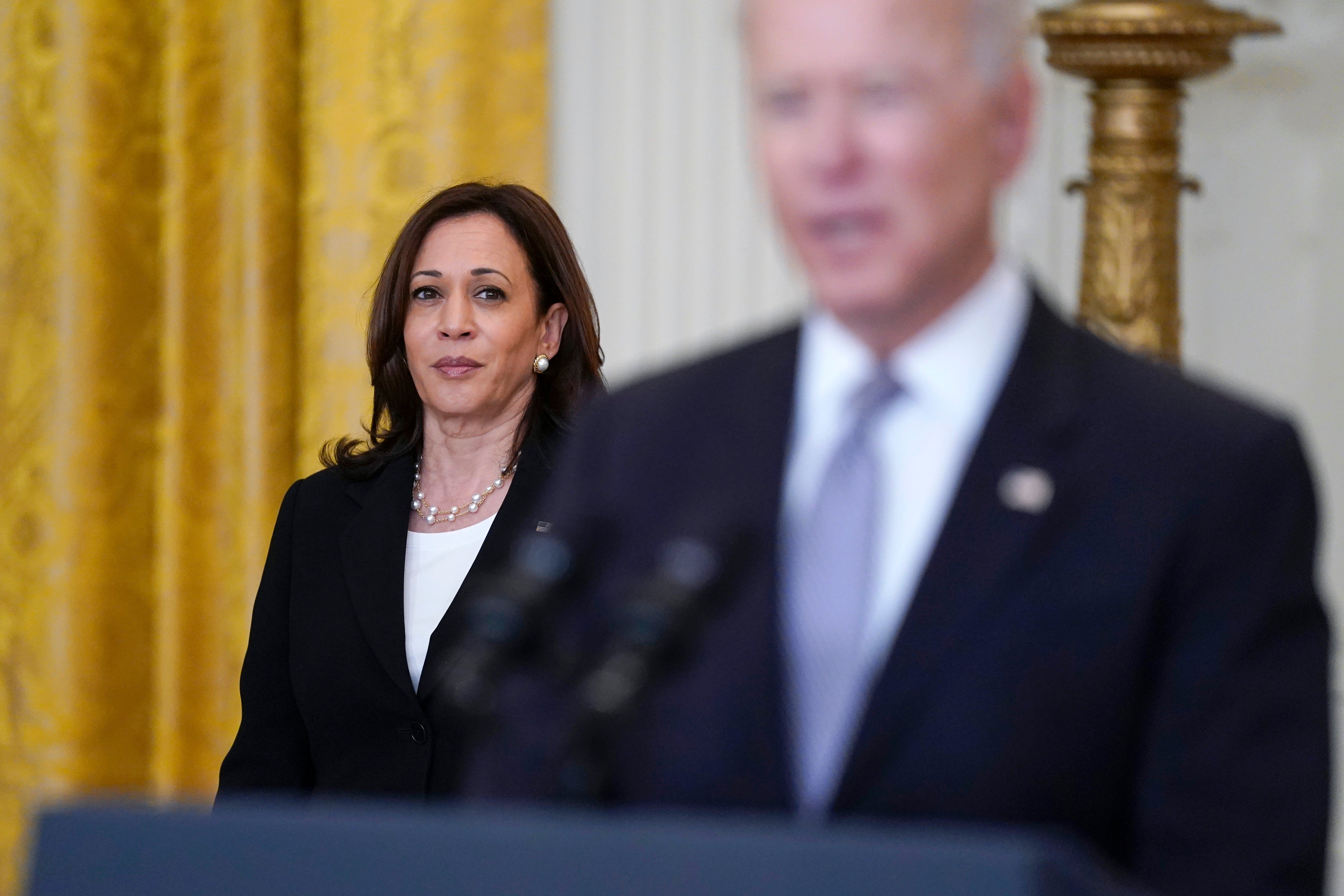As he became the Democratic frontrunner in 2019 and favored to defeat Donald Trump in 2020, a report claimed that Joe Biden was only going to serve one term if elected.
His campaign swiftly dismissed it.
Today, some are wondering if it would have been better if he had adhered to that report.
During the 2024 campaign season, Biden announced plans to run for reelection. That came despite concerns about his age and whether he could serve another four years. Then, Biden fumbled through his debate against Trump and Democratic panic ensued.
The 81-year-old exited the race and endorsed his VP Kamala Harris to succeed him at the top of the ticket. The rest — namely Trump’s election win — is history.
The disappointing results for Democrats have prompted many to point fingers at Biden as the reason for Harris’s loss, with some even going so far as to say his ill-advised decision to run again overshadows his legacy entirely.
They claim that his decision to run and then drop out prevented a primary for Democrats to choose their candidate. They also said it prevented Harris from running a full campaign.
“Joe Biden is the singular reason Kamala Harris and Democrats lost tonight,” one Harris aide said bluntly to Politico Magazine.
“There should be accountability and Joe Biden should not have run for a second term,” Andrew Yang said on CNN. “He should have dropped out in January, not July.”
“Maybe in 20 or 30 years, history will remember Biden for some of these achievements,” Thom Reilly, co-director of the Center for an Independent and Sustainable Democracy at Arizona State University, told PBS News. “But in the shorter term, I don’t know he escapes the legacy of being the president who beat Donald Trump only to usher in another Donald Trump administration four years later.”
Biden is far from the only Democrat in recent memory accused of overstaying his welcome in his political post. Late Supreme Court Justice Ruth Bader Ginsburg and late California Senator Dianne Feinstein spring to mind.
Still, some strategists argue scapegoating Biden is unfair.
“I think it’s an unfair, stupid notion that some people, including those in my party, are trying to use as a narrative,” Democratic strategist Antjuan Seawright told The Independent.
“The fact of the matter is that Kamala Harris would not be in the position to be the leader of our party for the 100-plus days that she was if it wasn’t for Joe Biden first picking her as vice president,” Seawright continued.
“Harris stepped into her short-lived campaign because of the infrastructure and resources because of what Biden was able to achieve as a candidate and as president,” he said.
Harris took control of Biden’s $95m campaign war chest once she rose to the top of the party’s ticket at the end of July.

Seawright called for an end to the blame game, claiming “nobody wins when the family feuds.” He also rejected the idea that Biden’s initial re-election attempt would taint his legacy.
“Joe Biden brought the country together. He delivered historic results that no one can argue,” he said.
Rob Godfrey, former deputy chief of staff to Nikki Haley when she was governor of South Carolina, similarly told The Independent that making Biden a scapegoat for Harris’s defeat — or Trump’s win — was unfair.
“It is hard to blame any one thing for a loss like the vice president’s when the Trump campaign deserves great credit for winning a large and resounding victory,” he said.
“The question of how the sitting president’s decision to exit the race — when, on what terms and whether it should have triggered some kind of primary process that could have produced a stronger Harris effort, less associated with Biden’s unpopularity — is more than fair to ask, and is one for historians to judge.”
The debate around that question “will rage for years to come,” Godfrey predicted.
Democratic strategist Christy Setzer said the election results suggest that the Democratic party was headed for a defeat regardless of whether Biden or Harris topped the ticket.
“When you see that the country shifted six points to the right (and less in the battleground states), that means that honestly, there was very little Harris could’ve done, especially in just over three months,” she told The Independent in an email. “But it also says that Biden was headed for a loss, likely even before the debate.”

She underscored other factors that could have led to Trump’s victory.
Trump’s win signals a larger, global trend of voting out the incumbent that has serve the past year when many nations dealt with inflation, she argued. UK Prime Minister Rishi Sunak and his conservative party were ousted, South Africa’s African National Congress lost its 30-year parliamentary majority and French President Emmanuel Macron’s snap election showed dwindling support for his party. Post-pandemic, voters appear to be restless for change.
For Trump, he spread fear to demonstrate why that change was necessary. He warned that Harris, who was vying to become the first woman elected president, would be “walk[ed] all over” by other world leaders due to her looks. He amplified baseless claims that Haitian migrants were eating pets to showcase “this is what’s happening in our country, and it’s a shame.” He even vowed to deploy the military against those who disagree with him, who he dubbed as “the enemy from within.”
This tactic seems to also have worked. “The American people demonstrated it’s easier to be angry than informed,” Seawright said. “It was an emotional election. People were voting against instead of for.”

The role that media and social media platforms played in the election are also under scrutiny.
“I also believe Democrats have been substantially disadvantaged by the spread of disinformation on social media platforms owned by right-wing billionaires,” Setzer said.
Elon Musk, the billionaire owner of X who donated nearly $75m to Trump’s campaign, has pushed anti-immigration rhetoric and baseless election fraud claims; he is the most-followed user on the platform.
“It’s so consequential that someone who is such a partisan figure is inhabiting that piece of digital real estate,” Emerson Brooking, a senior fellow at the Atlantic Council’s Digital Forensic Research Lab, told the New York Times this week. The outlet analyzed Musk’s tweets across a one-week span in September, finding that nearly a third of his posts were “false, misleading or missing vital context.”
The amplification of unchecked content could be at the heart of these election results, Setzer argued.
But it wasn’t just X posts that reached voters. Trump tried to appeal to the so-called “bro vote” by sitting down with podcasters such as Theo Von, Logan Paul and Joe Rogan. His strategy seemed to have worked; men of all ages overwhelmingly voted for him.

There’s also Steve Bannon, Trump’s former adviser-turned-right-wing podcaster, who provided some insight into this misinformation overload strategy, telling a Bloomberg reporter in 2018: “The real opposition is the media. And the way to deal with them is to flood the zone with s**t.”
On his show “War Room,” he echoed Trump’s claims about Covid-19 mandates, the Biden family, and election fraud. The mega-popular show, however, was found to be the biggest offender of spreading election misinformation, leading the other top 20 political podcasts tracked from the date that Biden accepted the Democratic nomination through January 6, 2021, according to a 2022 Brookings Institution analysis.
Setzer attributed the rightward shift to the spread of misinformation: “When voters (correctly) understood that crime was at a 50-year low, that the stock market was at its highest point ever, that the economy was literally the best in the world, they voted Democratic in huge numbers. The people who believed misinformation, voted for Trump.”
“That’s why it’s so tough to say what Democrats should do differently next time, other than — had we won power — try to regulate social media platforms against deliberate spreading of misinformation,” Setzer added.







